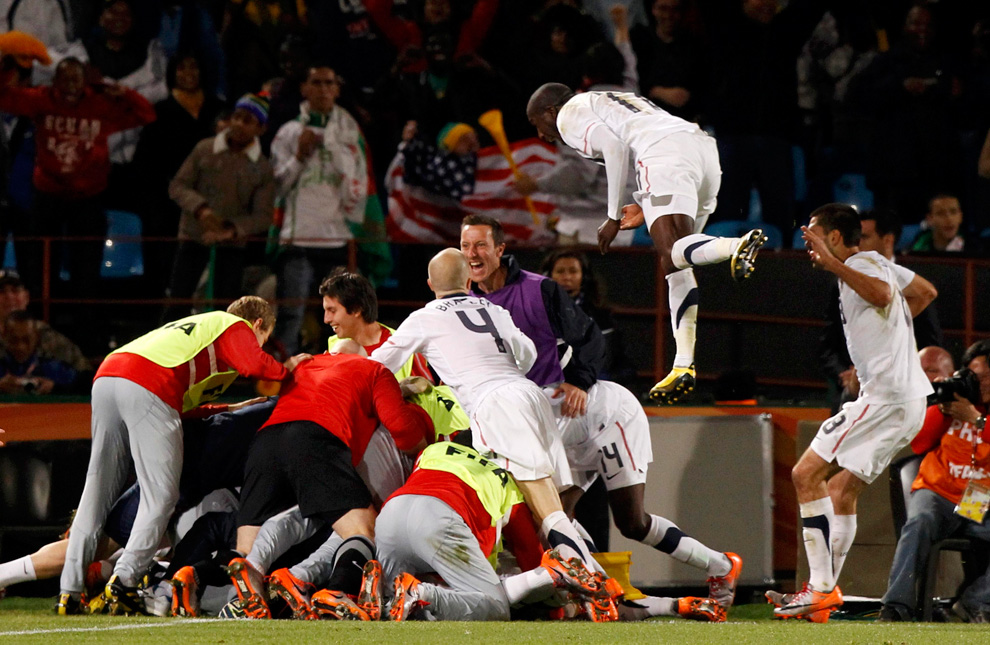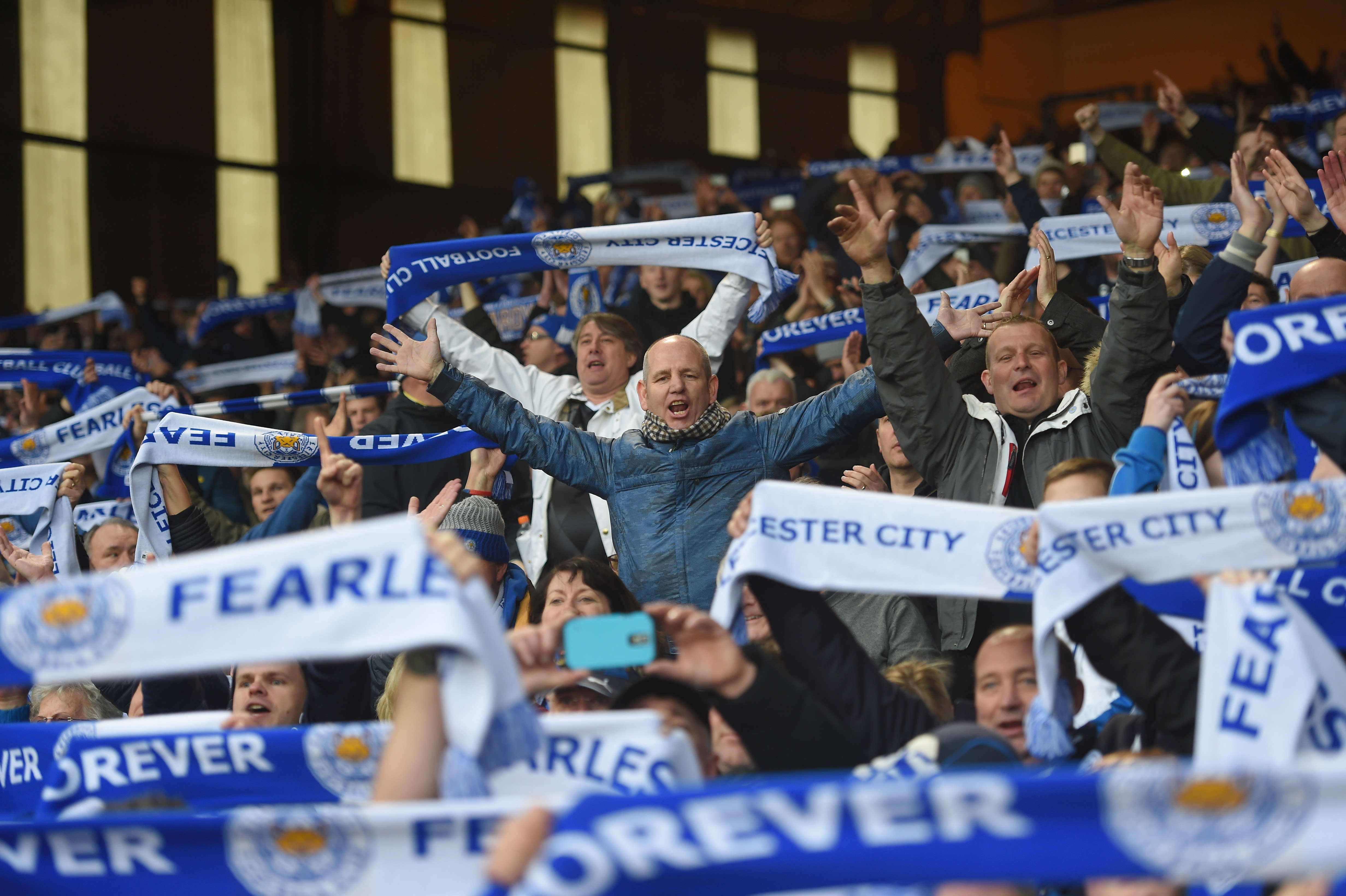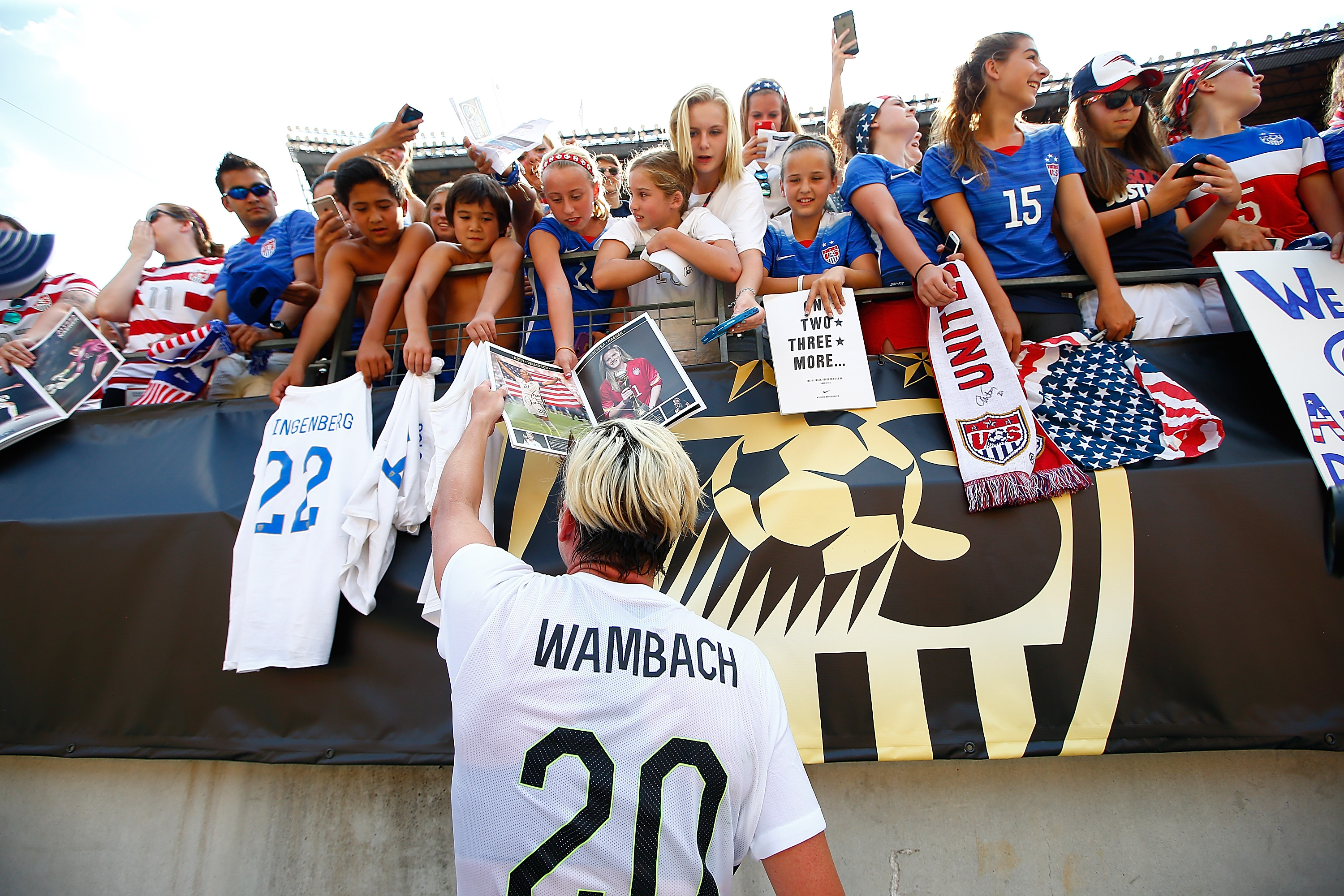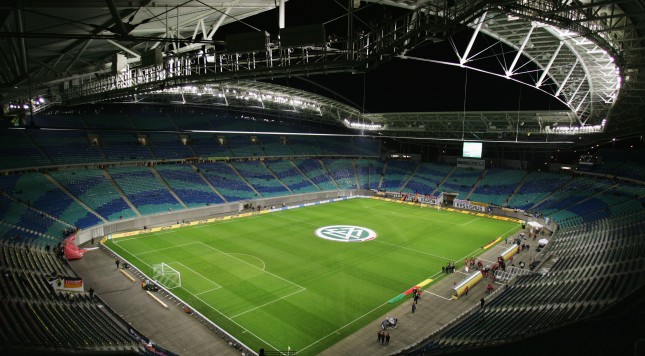During RB Leipzig’s first round loss to Dynamo Dresden in the DFB Pokal, Dresden fans greeted the newest Bundesliga club by throwing a severed bull’s head down from the stands. That should tell you all you need to know about the popularity of the Leipzig club.
Founded only seven years ago, RB Leipzig’s rise through the German footballing landscape has been rapid. It’s also been met with contempt at every stage.
Their official name is RasenBallsport Leipzig, which roughly translates to Lawn ball sport Leipzig. It’s a silly name picked for the sole purpose of hiding who they really are. Austrian Energy drink company Red Bull own RB Leipzig, much like they own the New York Red Bulls in MLS and the Austrian side Red Bull Salzburg.
In Germany, this creates a problem. The German FA doesn’t allow corporate sponsors to permeate their clubs in the way that other countries will allow single owners to control operations. If you’re not familiar with Germany’s 50+1 rule, it essentially says no one person or company can own more than 49% of any club. RB Leipzig doesn’t break this rule, though most of it’s club members are Red Bull employees and membership fees are outlandish compared to other German Clubs. A year membership to RB Leipzig will set you back 800 Euros. A Bayern Munich membership, for comparison, will only cost you 60 Euros. RB follow the letter of the law, but many in Germany argue it’s the principle that’s being ignored.
All those principles are second to putting a successful team on the field in the eyes of RB Leipzig’s owners. In some ways, it’s good for Germany and the Bundesliga to have a team from the former East Germany play in the top flight and be successful. Leipzig has every intention of being successful.
Their rise up the ladder isn’t unlike that of Hoffenheim, the club they played Sunday in the season opener. With a population of just over 3,000 people, the village of Hoffenheim is an unlikely place for a top flight club. Billionaire Dietmar Hopp funded the small club back in 2000 and they subsequently jumped to the Bundesliga in a few years time. With the help of coach Ralf Rangnick, Hoffenheim was able to develop their own players and attract players that fit the coaches system. Rangnick, the godfather of the now famous gegenpressing style, now works as a sporting director for RB Leipzig. He’s done this before.
Hoffenheim banners today v RB Leipzig: "We want our throne back: Germany's most hated club." (via @santapauli1980) pic.twitter.com/7pixSEpopM
— Archie Rhind-Tutt (@archiert1) August 28, 2016
Leipzig’s goal is to eventually rival teams like Bayern and Dortmund. With the financial backing of Red Bull, that’s not a fantasy. In many respects, that’s good for the league. Bayern’s recent dominance isn’t ideal for advertising the league, especially when across the English Channel there is a league that is near impossible to predict at times. RB Leipzig is intent on becoming an elite team, no matter how many enemies they make along the way.
In their ultra modern training facilities located in the old Saxon town of Leipzig, the players go about their day like any other professional would. But, outside those walls, across Germany, they’re about as unpopular as anyone. The hatred is different than that which a team like Bayern has to endure. Leipzig is viewed as a plastic club, something artificial that doesn’t belong in a league that values history and fan culture almost to the point of obsession.
Plastic or not, Leipzig sold 20,000 season tickets in the summer. There is a real appetite in the east for an East German team to play in the Bundesliga and play well. If Sunday’s exciting draw with Hoffenheim was any indication, this is a team that will stick around. The players, as well as the Red Bull ownership, know they have the finances and the facilities to become one of Germany’s best teams. The only thing missing is acceptance. That might never come, but if they’re winning they won’t care.






